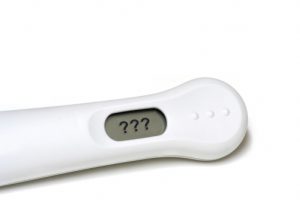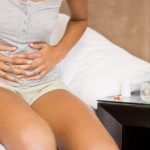 Endometriosis increases the risk of pregnancy complications and affects fertility in women. Study author Dr. Lucky Saraswat said, “These results indicate that endometriosis predisposes women to an increased risk of early pregnancy loss and later pregnancy complications.”
Endometriosis increases the risk of pregnancy complications and affects fertility in women. Study author Dr. Lucky Saraswat said, “These results indicate that endometriosis predisposes women to an increased risk of early pregnancy loss and later pregnancy complications.”
The nationwide cohort study examined discharge data from all across Scotland. Records of women with and without a confirmed diagnosis of endometriosis were crosslinked to their maternity records to evaluate pregnancy outcomes. The analysis included 14,655 women whose medical records were followed up for up to 30 years.
Advertisement
Endometriosis is a fairly common condition in which the cells of the uterus lining are found in other parts of the pelvis. Information regarding endometriosis is usually from infertile women and not based on the general population.
The study conducted by Dr. Saraswat and colleagues examined the reproduction and pregnancy of 5,375 women with endometriosis and 8,280 women without the condition, who were all pregnant during the same time. Women with endometriosis had a significantly higher risk of early pregnancy complications, compared to the women without endometriosis. Endometriosis patients had a 76 percent higher risk of miscarriage and three times greater risk for ectopic pregnancy.
For women with previous endometriosis diagnosis, the risk of ante- and postpartum hemorrhage and preterm birth was much higher, compared to the control women.
Dr. Saraswat explained that the increased risk of pregnancy complications is associated with inflammation in the pelvis along with structural and functional changes in the lining of the uterus. “We believe such changes in the pelvic and uterine environment could influence implantation and development of placenta, predisposing them to adverse pregnancy outcomes,” Dr. Saraswat said.
Dr. Saraswat advises that women should be counseled if they have a diagnosis of endometriosis and are looking to begin a family. Women with endometriosis should be aware of their heightened risk of complications during pregnancy.
Endometriosis and fertility
Endometriosis can negatively impact a woman’s fertility, which is shown to decrease in three or four out of every 10 women with endometriosis. Ideally, if you have endometriosis, it is advised to start having children prior to your 30s. To avoid complications, sooner is better than later.
Infertility in endometriosis can be caused by a number of factors, including damage to the fallopian tubes or ovaries. Nearly 70 percent of endometriosis cases can be resolved without treatment, and a woman can deliver a healthy baby without complications.
Medications don’t typically help to improve fertility problems in endometriosis, but surgery may rather be utilized to remove visible endometriosis tissue. However, even surgery is not a full guarantee that pregnancy will occur.
The more severe and advanced endometriosis is, the more difficult it becomes to achieve pregnancy. It’s important that you speak to your doctor prior to trying to conceive in order to reduce disappointment and begin any useful treatment that may lead to successful pregnancy.
Pregnancy options for women with endometriosis
 Not all hope is lost if you are a woman with endometriosis, as there are ways you can still achieve pregnancy. It just may require a bit more work. In vitro fertilization (IVF) has been shown to have high success in helping women with endometriosis achieve pregnancy. In IVF, a woman’s egg is fertilized with a man’s sperm in a laboratory setting and then placed into the uterus to grow and develop.
Not all hope is lost if you are a woman with endometriosis, as there are ways you can still achieve pregnancy. It just may require a bit more work. In vitro fertilization (IVF) has been shown to have high success in helping women with endometriosis achieve pregnancy. In IVF, a woman’s egg is fertilized with a man’s sperm in a laboratory setting and then placed into the uterus to grow and develop.
Fertility medication can help boost success of pregnancy in endometriosis, too. Some women are given hormones along with their IVF treatment in order to improve the odds of pregnancy.
Removal of endometriosis tissue has also shown to help improve the likelihood of pregnancy in 30 to 80 percent of cases. On the other hand, surgery has also been shown to worsen endometriosis symptoms and increase infertility.
Knowing which option to choose is something that is discussed and worked out with the help of your doctor. There are a few different ways to confirm a diagnosis of endometriosis, including:
- Laparoscopy
- Hysteroscopy
- Hysterosalpingography, which is an X-ray done with a local anesthetic and a catheter inserted into the vagina to fill the fallopian tubes with contrasting fluid.
Endometriosis natural treatment and home remedies
Some natural treatments and home remedies to ease symptoms related to endometriosis include taking warm baths or applying heating pads, using over-the-counter anti-inflammatory drugs, and partaking in regular exercise in order to improve symptoms. Some women have reported obtaining relief from acupuncture sessions, but this form of treatment should be discussed with your doctor, as there is little evidence to support the claim.
Some other home remedies include placing warm castor oil on the lower stomach area, taking a warm bath followed by a cold bath – you can add essential oils to the bath – performing a pelvic massage, consuming flaxseed, mixing mild asparagus powder with milk and taking it twice daily, and consuming chamomile.
Related Reading:
Sperm gene could mean cure for infertility
According to the World Health Organization, infertility affects between 50 and 80 million people worldwide, and half of infertile couples fail to reproduce because of problems with the man’s fertility. The medical definition of infertility is “the failure to conceive following twelve months of unprotected intercourse.” Causes of male infertility range from impotence to premature ejaculation to inadequate semen or sperm quality. Approximately one in 1000 men are infertile because of spermatogenic failure. Continue reading…
Advertisement
Endometriosis pelvic pain in women associated with poor mental health
Women who suffer from pelvic pain due to endometriosis may need help with their mental health. A new study suggests, endometriosis and psychological health are connected. Endometriosis is a disorder that impacts the tissue lining the inside of the uterus, called the endometrium. Sometimes, the tissue grows outside the uterus, resulting in this painful disorder pronounced en-doe-me-tree-O-sis. Continue reading…
Sources:
http://www.nzendo.org.nz/about-endometriosis/fertility-and-endometriosis
http://www.nhs.uk/Conditions/Endometriosis/Pages/Complications.aspx
http://www.everydayhealth.com/womens-health/making-pregnancy-possible-with-endometriosis.aspx
http://www.top10homeremedies.com/home-remedies/home-remedies-endometriosis.html/2
http://www.mayoclinic.org/diseases-conditions/endometriosis/basics/lifestyle-home-remedies/con-20013968
http://www.mayoclinic.org/diseases-conditions/endometriosis/basics/alternative-medicine/con-20013968
